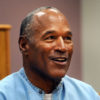Postdoctoral training is vital for new Ph.D. graduates. This is a period of “apprenticeship” for a newly-minted researcher to hone their skills in a research environment. It typically follows completion of the doctoral degree. Depending on the scientific field and other factors, training can last a year or two and beyond.

This apprenticeship provides young postdocs with critical experience and helps to develop the skills they need to become seasoned research leaders. Yet, very few African universities offer postdoctoral training, primarily due to a lack of mentorship. There are simply not always enough senior, qualified faculty staff – those with PhDs – who can provide the necessary support.
And even if they are able to get postdoctoral places at African institutions, young early career researchers from the continent face four main challenges.
First, they lack access to resources at their home institutions. Second, they haven’t been properly trained in grant writing, an essential skill for accessing competitive funding for their research. Third, they lack mentors or supervisors. And finally, postdoctoral positions tend to be poorly paid.
Postdoctoral training is a critical element of building Africa’s population of researchers. The continent needs to develop its capacity for globally competitive postdoctoral training, as this is essential to promoting scientific and research excellence and leadership. These globally competitive scientists are key to transforming universities into research hubs equipped with skilled staff to mentor the next generation of well-trained scientists to feed ongoing knowledge-based African economies.
This level of talent can only be recruited and retained with sustained funding and infrastructure. For this to happen, African governments must commit to investing more in research and development.
Research infrastructure
Lack of access to resources is a big problem for postdoctoral researchers. Quality science happens in an environment where researchers have state-of-the-art infrastructure and receive good administrative support. This allows them to focus on their research. So it’s imperative for postdocs to be located in accomplished scientists’ laboratories in established and well-resourced universities.
But African universities tend to lack good research infrastructure. This means that Ph.D. graduates can’t get the sort of postdoctoral training they need.
Instead, they often get sucked into teaching or administrative work. Data shows that the average ratio of lecturers to students is as high as 1:47. In Kenya, a lecturer can handle as many as 80 to 100 students. Academics become overwhelmed by their teaching loads and the associated paperwork. They are left with little or no time for research.
Not all Ph.D. graduates choose to stay in Africa and go the teaching route. Many seek internationally competitive postdoctoral training abroad or are increasingly moving to South Africa because of its strong research infrastructure and postdoctoral programs.
Many of these well-trained scientists then remain in their host country for their productive careers. This deprives Africa of the opportunity to build a world-class research infrastructure at home.
Grant writing
South African institutions have well-established research support offices to provide postdoctoral career pathways as well as support for developing strong applications.
We saw this first-hand at The African Academy of Sciences when, with the Royal Society, we offered fellowships to 30 postdocs as part of the Future Leaders African Independent Research program. Those who came from South Africa or were at South African institutions received support ahead of their applications, which helped them to prepare budgets and ultimately to be more competitive in their applications.
Unfortunately, this is not the case for the rest of the continent. For the most part, research support offices don’t exist, and applications are largely driven by an individual’s intellect, grit, and determination to succeed, with little institutional support.
Lack of mentors or supervisors
African universities face a dire shortage of Ph.D. level staff. The shortage of lecturers with doctorates means that institutions of higher learning aren’t preparing graduates that can be competitive in the academic world or the private sector globally.
Additionally, there are fewer accomplished scientists that can take up postdoc positions and fewer institutions with the capacity to host postdoc trainees. This forces Ph.D. graduates either to delay taking up postdoc opportunities or look elsewhere for opportunities.
The challenge is also reflected in the quality of postdoc applications. This has knock-on effects. To become research-focused, universities are expected to attract world-class researchers who will need the support of well-trained postdocs to help them achieve their personal and institutional objectives.
Poor remuneration
Universities need to provide attractive employment conditions if they want to attract postdoctoral fellows. An important part of this is being able to offer facilities and financial support. Postdocs need to be well funded to make the training attractive for early career researchers who are also often taking care of families while embarking on their research careers.
Our experience at The African Academy of Sciences suggests this can be done. We have a program management platform, the Alliance for Accelerating Excellence in Science in Africa, that focuses on building well-funded postdoctoral programs to create a critical mass of African researchers. Other organizations and research bodies could consider a similar approach so that postdocs have a better chance to make a decent living while growing their skills as researchers.
Judy Omumbo, the Programme Manager for Affiliates and Postdocs at The AAS also contributed to this article![]()
Thomas Kariuki, Director of programs, African Academy of Sciences
This article is republished from The Conversation under a Creative Commons license. Read the original article.








































